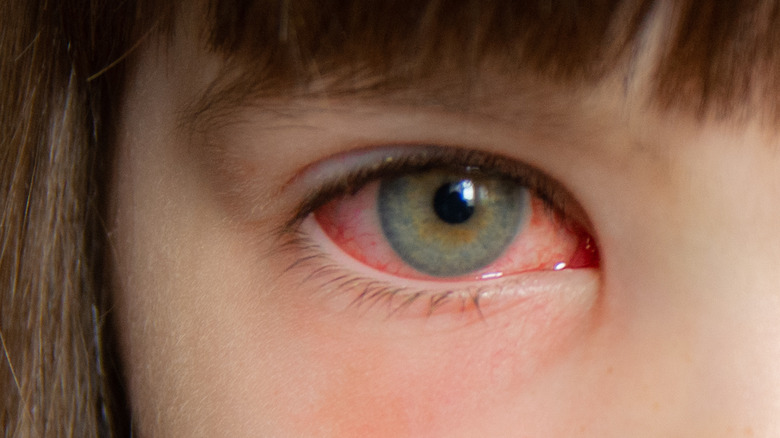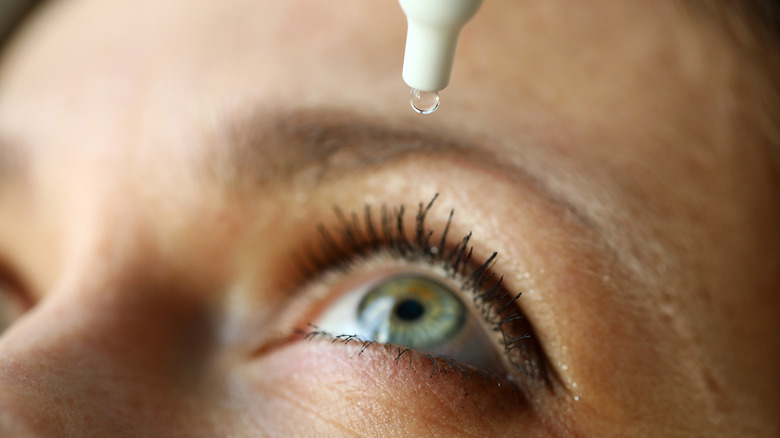This Is What Really Causes Pink Eye
Red, itchy, watery eyes are a common sight during allergy season. But what does it mean when your eyes still have these symptoms once the season ends? Could it be pink eye? It can be hard to tell the difference between an allergic reaction and a pink eye infection when the symptoms are so similar. "Symptoms can really look the same," Dr. Sunil K. Saini, a member of the American Academy of Allergy, Asthma, and Immunology and California-based allergist, told Health. "In both conditions you typically are going to have redness in your eye and tearing."
Pink eye is medically referred to as conjunctivitis. The pink or reddish color of the eye is a result of inflamed tiny blood vessels in the conjunctiva, or the clear membrane that covers the white of the eye (via the Cleveland Clinic). The swollen blood vessels become more visible than normal, making the eye appear pink. But what is the cause of pink eye?
Figuring out the cause is the key to treatment
Knowing the cause of pink eye is the key to treating it (if at all). Bacteria, viruses, and allergies can all cause conjunctivitis, according to the Cleveland Clinic. There's no real cure for viral pink eye, but most cases are mild and will go away on their own within a couple of weeks. "For the worst cases, topical steroid drops may be prescribed to reduce the discomfort from inflammation," Dr. Sharon Lehman, division chief of pediatric ophthalmology at Nemours/Alfred I. DuPont Hospital for Children in Delaware, told U.S. News & World Report. "[However], these drops will not shorten the infection." When pink eye is caused by bacteria, antibiotic eye drops or ointments may be prescribed.
If the cause is an allergy or an irritant (like chlorine from a pool), treatment involves simply avoiding the allergen as much as possible and easing discomfort with eye drops or a cool compress. Viral and bacterial pink eye are both very contagious, so doctors advise washing hands regularly and not touching your eyes. "Hand hygiene is really the key to prevention," Karen Hoffmann, past president of the Association of Professionals in Infection Control and Epidemiology, told U.S. News and World Report.


